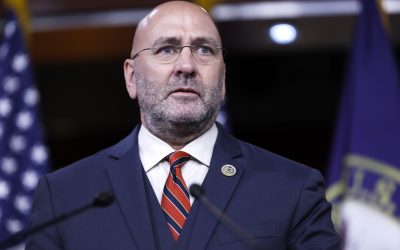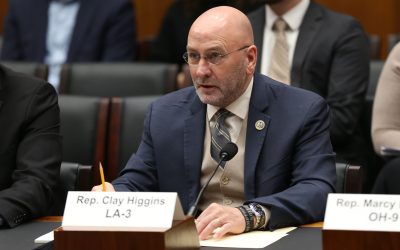U.S. Rep. Clay Higgins, R-Port Barre, says his legislation to authorize the Department of Homeland Security will give Congress needed oversight powers that may yet trim the department’s size and cost while improving its work product.
His congressional colleagues apparently agreed Thursday, passing the bill co-authored by Reps. Higgins and Michael McCaul, R-Texas, who chairs the House Homeland Security Committee, 386-41.
It’s the fourth bill the freshman Acadiana congressman has cleared through the House and sent to the Senate since taking office in January. He replaced former congressman Charles Boustany, who left the House for an unsuccessful Senate race.
“The Department of Homeland Security has done a good job, but it hasn’t done an efficient job,” Higgins said of the department established by former President George W. Bush in the wake of the 9/11 terrorist attacks.
He said the department was created during a time of urgency and hadn’t been clearly authorized under congressional control. DHS has some 240,000 employees and a discretionary budget of some $40 billion, although control of the department has been loosely held by the executive branch and a variety of committees, perhaps as many as nine.
If the Senate approves the DHS Authorization Act of 2017, Higgins said, it would give Congress greater oversight over DHS’ spending and programs, which he said are not under “proper control.”
“Our country is in a bind with $20 trillion in debt but we still have to run a government,” he said in a telephone interview. “For the first time in 15 years, the department will come under congressional control.”
What this bill changes
Higgins said the bill advances changes such as giving DHS more structure; authorizing U.S. Immigration and Customs Enforcement, which enforces law governing border control; reauthorizing the Federal Emergency Management Agency and the Transportation Security Administration; streamlining DHS offices; enhancing cyber security defense; and replacing and modernizing Coast Guard assets to make that service branch more effective in protecting ports.
Higgins said cyber security has changed dramatically over the past 15 years, and so should U.S. efforts. The department, he said, is “largely responsible for work to protect cyberspace.”
He said if the bill becomes law, Congress will be better positioned to “dig into the details” and determine where to streamline its operations and make them more effective.



